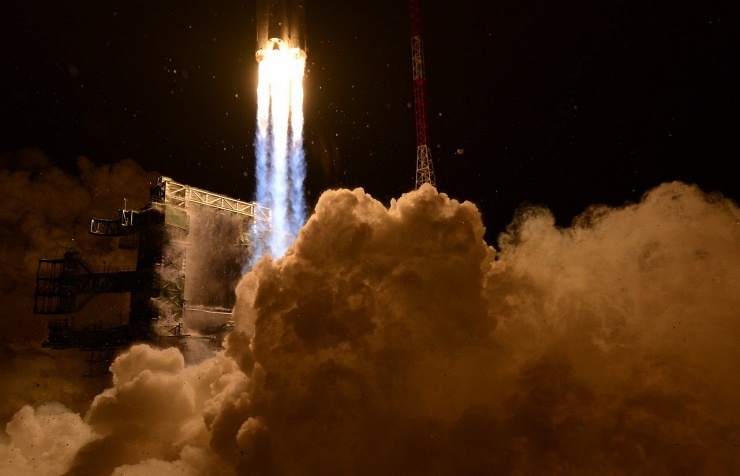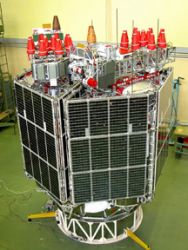In its first GLONASS-M launch in more than a year, Russia lifted a satellite into orbit yesterday (3:21 a.m. Moscow time, February 7, 2016) from the Pletsetsk Cosmodrome, after being postponed from December.
GLONASS-M #51 (GLONASS constellation designation #751) will replace a 10-year-old satellite (GC#714) that ceased operations last October in slot 17, orbital plane 3 of the constellation.
In its first GLONASS-M launch in more than a year, Russia lifted a satellite into orbit yesterday (3:21 a.m. Moscow time, February 7, 2016) from the Pletsetsk Cosmodrome, after being postponed from December.
GLONASS-M #51 (GLONASS constellation designation #751) will replace a 10-year-old satellite (GC#714) that ceased operations last October in slot 17, orbital plane 3 of the constellation.
The satellite reached orbit aboard a Soyuz-2.1b rocket with a Fregat upper stage. Three and a half hours from the lift off the satellite separated from the upper stage and ground control established communications with it, according to Information Satellite Systems (ISS) – Reshetnev Company, which built the spacecraft.
According to the telemetry data received from GLONASS #51, the satellite is in good health, Reshetnev said in a news release. “With all its mechanical subsystems successfully deployed, the satellite completed Earth and Sun acquisition. The Moscow-based System Control System and ISS-Reshetnev’s Information and Computation Center have already begun satellite’s performance check-out.”
Reshetnev
Eight launch-ready GLONASS-M navigation satellites are currently stored at ISS-Reshetnev Company.






